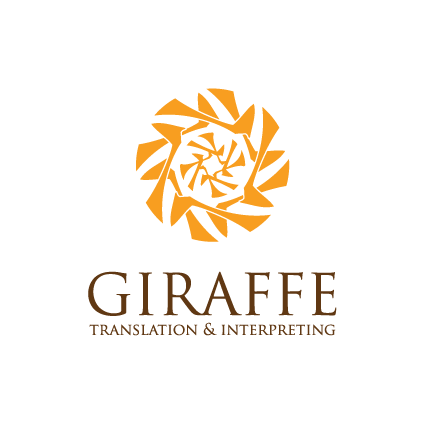Frequently Asked Questions
My dear, It took me a lifetime to be able to draw this sketch.
Are your translations officially acceptable?
Yes. Our translations are acceptable by all the UK authorities, including the Home Office, UK Visas and Immigration (UKVI), British Embassies, HM Courts and Tribunals Service (HMCTS), universities, etc. As we are a member of the Association of Translation Companies and individual members of our team are members of professional translation bodies such as CIoL and/or ITI, our certified translations are acceptable by all the UK authorities. Some foreign governments and authorities may also accept our translations, but they usually do so if the translations are legalised in the Foreign and Commonwealth Office and/or their embassies or consular sections in the UK.
Do you provide certified translations / official translations?
Yes, we do provide certified translations (official translations), as we are a member of the Association of Translation Companies (ATC) and individual members of our team are members of the Chartered Institute of Linguists and/or Institute of Translation and Interpreting. You can find a comprehensive guide on who can certify a translation here: https://atc.org.uk/wp-content/uploads/ATC-CIOL-ITI-Getting-it-Right-Certified-Translation-2024.pdf
Certified translation or official translation?
In the UK, the correct and commonly used term is “certified translation” rather than “official translation.” Here’s the distinction:
Certified translation (UK) → A translation accompanied by a signed statement (usually from the translator or translation company) confirming that it is a “true and accurate translation of the original document.” This is what UK authorities (e.g. the Home Office, courts, universities) typically request.
Official translation → This term is more common in some other countries (e.g. in Iran, Spain, Italy, or France), where a sworn translator appointed by a government body provides the translation. The UK does not have such a system.
What languages do you do at Giraffe Translations?
We do a wide variety of languages from Farsi (Persian), Arabic, Turkish, Hebrew, Dari, Pushto, Urdu, Kurdish to Russian, French, Vietnamese, and Swahili.
Do you have any specialisation?
Yes, we specialise in the provision of legal translation to law firms. Our focus is on translating official documents and statements to be used either by individual people in their various applications or by law firms. In terms of languages, we specialise in the languages of the Middle East, including Farsi, Kurdish, Arabic.
How much does it cost to translate a document?
Our prices start from £45 per document (e.g., a birth certificate). You can WhatsApp or email your document to us to get an exact cost and turnaround time. Alternatively, you can upload your document via this link: https://www.giraffetranslations.co.uk/more-pages/quote
How long does it take to translate a document?
Most translation projects take between 2-7 days to complete. But the turnaround time really depends on the language, size and complexity of the project. Once we see the document, we can give you an exact turnaround time. Please feel free to WhatsApp or email your document to us or upload it via this link: https://www.giraffetranslations.co.uk/more-pages/quote
Do you offer urgent translations as well?
Yes we do offer urgent translations as well. We do have urgent, same-day, next-day, and weekend delivery options as well.
My document is confidential. How can I trust you?
We are 100% committed to safeguarding the privacy of all individuals whose personal data we store and process for the purpose of our services. Please visit our Privacy Notice for more information.
How can I send my document to you?
You can simply WhatsApp or email your document to us, or your can upload it via our website. Visit this page for uploading: https://www.giraffetranslations.co.uk/more-pages/quote
How would you send the translation to me?
We can email an electronic copy of your translation to you. If you need a physical copy, we can post a hardcopy to your address in the UK via Royal Mail.
Do I need to send the original documents to you?
No! We do not necessarily need original documents for translations. Unless in exceptional circumstances, we only need a clear copy of the document in an electronic format, like a PDF file. But just bear in mind that some authorities require the translator to certify that s/he has translated from an original document.
How can I pay you?
You can pay us by bank transfer directly to our business bank account, or you can pay by debit or credit cards via the links available on our invoices.
Do you offer translations at Legal Aid rates?
Yes, we do. Giraffe Translations offers Legal Aid rates to law firms for their Legal-Aid cases (i.e., publicly-funded cases)- whenever resources allow. Standard LA rates are currently (2025): £100–£109 per 1,000 words for translation, £25-£29 per hour for interpreting, £17 per hour for travel time, and 45p per mile for travel expenses (or public transport fare, if cheaper).
According to the legend, Picasso was at a Paris cafe, doodling on a napkin when an admirer, recognising the artist, approached him and asked if she could purchase his drawing.
Upon completing the napkin sketch, Picasso asked for a million Francs in exchange for the sketch. The admirer was taken aback by this seemingly exorbitant request. After all, it had taken Picasso just a few minutes to create the drawing. In her eyes, the value of the sketch appeared disproportionate to the time it took to create it.
Picasso, however, responded with a phrase that has since become an enduring testament to his artistic journey and mastery: "My dear, It took me a lifetime to be able to draw this sketch."
In this simple but profound statement, Picasso encapsulated the essence of his artistic development. He was not merely asking for compensation for the physical act of drawing on a napkin;he was asking for recognition of the years, the practice, the experimentation, and the dedication that had led him to possess the skill to create such a masterpiece in mere minutes.



